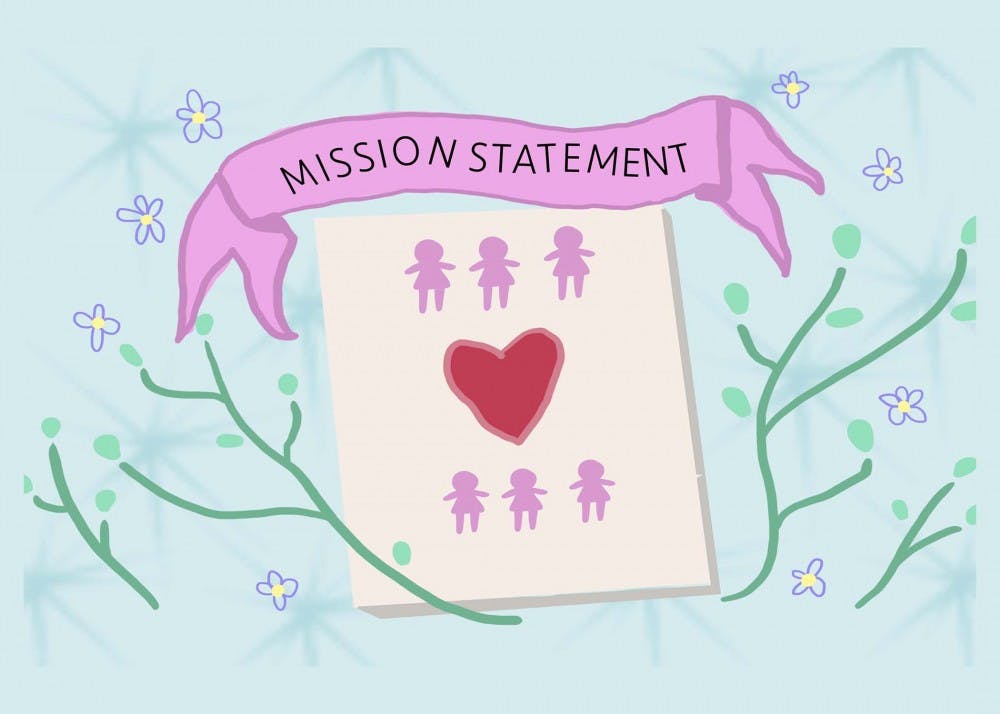The glamorous and picture-perfect lives of sorority girls constructed by Hollywood and the media have become iconically tied with American college campuses.
Many students have a warped idea of what it means to be in a sorority, and as a result, those involved in them are unfairly attached to a negative stigma.
Contrary to common belief, the goals of sororities are not glamour or popularity. Each sorority has a uniting purpose and a distinct mission statement. The women who join these sororities are tied together by a larger cause.
A common misconception about sororities is that the members are simply paying to have friends. In reality, sorority dues cover the cost of chapter operations and sisterhood activities.
Social media and movies have fostered the idea that sororities select their members based solely on appearance and wealth. While it is important and common to dress in a more elegant or professional manner during the rush process, this stereotype is unfounded.
Each sorority has specific academic and social requirements, and selection is based on those components. These organizations seek well-rounded women who demonstrate the potential to be leaders.
In movies like "Legally Blonde," sorority girls appear to be intellectually inferior in comparison to their peers on campus.
Most sororities have GPA requirements that must be met to rush and maintained to continue being an active member of the sorority.
At ASU, the all-Greek GPA is actually higher than that of the general undergraduate class. According to the ASU Annual Greek Report, in the spring semester of 2017 the all-sorority GPA was 3.33, which is higher than the all-female GPA, which was 3.15.
In that same semester, there were 1,765 Dean's List recipients, and 35 percent of those came from the sorority and fraternity community despite the fact that Greek life makes up only nine percent of the undergraduate student population.
The statistics speak for themselves — the women in sororities are high achievers and committed to their academic careers.
"I have met many genuine, strong women through my sorority," Kylie Churnetski, Greek life Wellness Committee leader, member of Alpha Chi Omega and freshman nutrition major, said. "All of these girls have aspirations beyond the stars and are willing to do what it takes to reach them, including late nights studying, taking internships and working — all while participating in Greek life."
The philanthropy aspect of sororities is often overlooked by the public because it isn't always explicit. Each chapter of each sorority has a cause that is the central to the organization. Sororities host multiple events each year to raise money for their selected causes, and millions of dollars are donated each year by Greek life organizations across the nation.
"Community service is something that each sorority and fraternity participates in multiple times throughout the year," Churnetski said. "The Greek community is very involved in their own philanthropic events, and in supporting their fellow Panhellenic groups."
There is a sorority or fraternity for anyone who is interested. The organizations come in many different shapes and sizes, with varying focuses. These include religious, business, cultural and social Greek life groups.
Sororities are a great way for women to be a part of something meaningful in college. These young women learn valuable leadership skills and are empowered through these organizations. It is unfair to stigmatize these women with outdated and unrealistic stereotypes.
Reach the columnist at adunn11@asu.edu or follow @adrienne_dunn on Twitter.
Editor’s note: The opinions presented in this column are the author’s and do not imply any endorsement from The State Press or its editors.
Want to join the conversation? Send an email to opiniondesk.statepress@gmail.com. Keep letters under 500 words and be sure to include your university affiliation. Anonymity will not be granted.
Like The State Press on Facebook and follow @statepress on Twitter.




